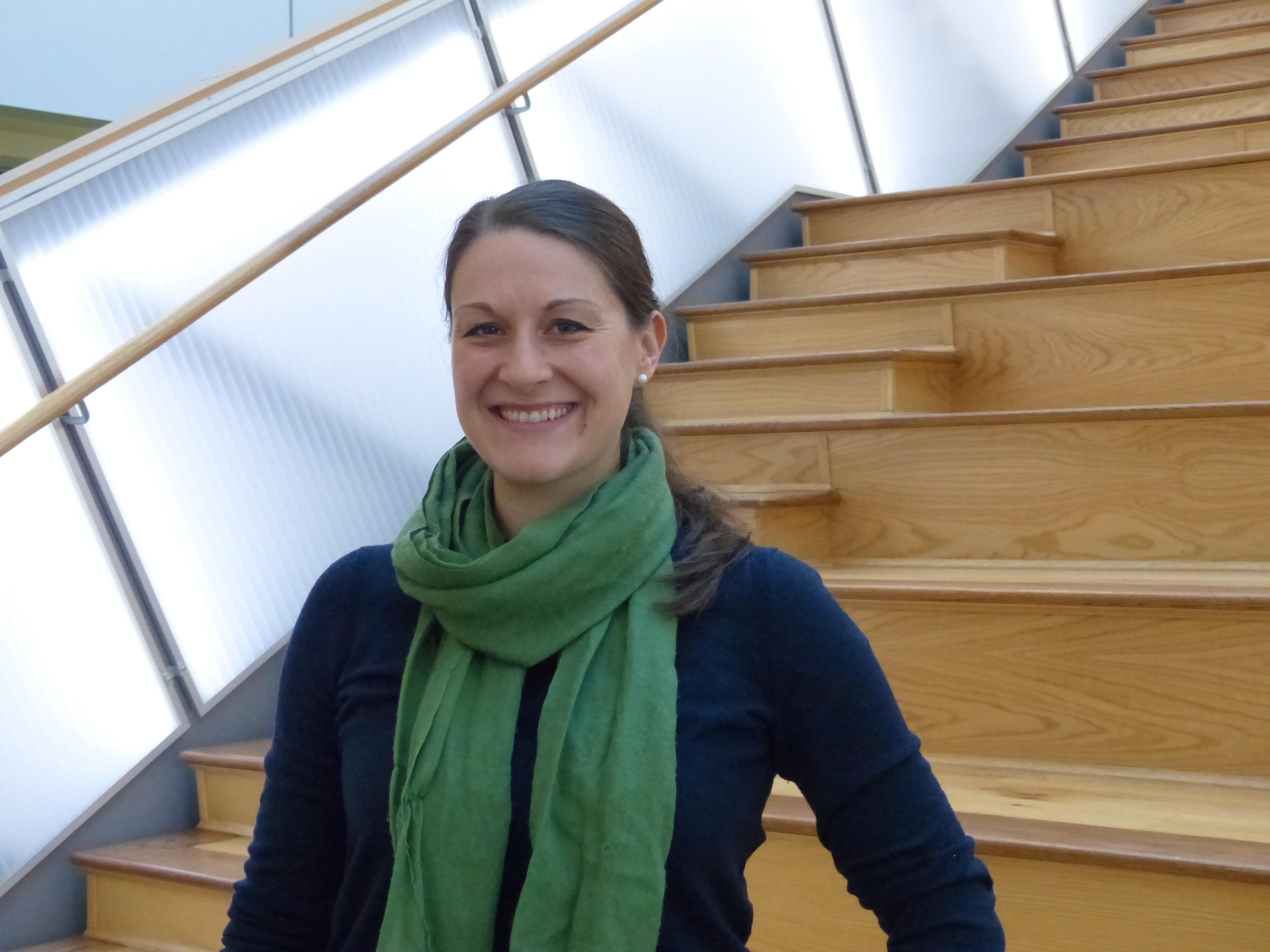
Community pediatrician Breanne Frohlich provides learning opportunities in the clinics where she practices.
Breanne Frohlich has a message for medical students and residents - finding the right fit is important when choosing your specialty as a physician. It's a message that she tries to instill when the community pediatrician works with learners in her clinics and on the ward.
"If you like what you are doing and can find ways to enjoy the mundane cases or types of work within that field, then you still will be excited to go to work, to see those families and to see those cases," says Frohlich, an assistant clinical professor in the Department of Pediatrics.
She completed her undergraduate degree at the University of Alberta and then graduated from medical school at McGill University. She returned to the U of A for her residency in pediatrics where she was chief resident. Now a community pediatrician, her office practice is in the HYS Centre, she sees newborns at the Royal Alexandra Hospital and inpatients in the Glenrose Rehabilitation Hospital. Her work schedule is rounded off with spending time on the clinical teaching unit at the Stollery Children's Hospital. The learners she interacts with bring a different perspective to her practice and keep her on her toes with their inquisitive questions.
"Working with students is great because they are so eager and keen to learn. I like having that part of my practice. They help keep you on your toes. They sometimes ask questions about things that I just wouldn't have thought about," says Frohlich, who received the Annual Excellence in Teaching Award in Community Pediatrics for Undergraduate Medical Education in 2018. "I've tried to stay fairly broad with my medical career by having my community practice, the babies, the Glenrose, the hospital and the teaching components. Right now I'm finding it a nice balance and a good mix of things to keep it interesting."
When medical students come to her practice, she tries to show them how they can be a valuable part of the team despite the fact that pediatrics may be foreign to them. "They get a lot of exposure to adult medicine. I help them to see the families and patients behind the medicine and the disease," she adds.
"If you like what you are doing and can find ways to enjoy the mundane cases or types of work within that field, then you still will be excited to go to work, to see those families and to see those cases," says Frohlich, an assistant clinical professor in the Department of Pediatrics.
She completed her undergraduate degree at the University of Alberta and then graduated from medical school at McGill University. She returned to the U of A for her residency in pediatrics where she was chief resident. Now a community pediatrician, her office practice is in the HYS Centre, she sees newborns at the Royal Alexandra Hospital and inpatients in the Glenrose Rehabilitation Hospital. Her work schedule is rounded off with spending time on the clinical teaching unit at the Stollery Children's Hospital. The learners she interacts with bring a different perspective to her practice and keep her on her toes with their inquisitive questions.
"Working with students is great because they are so eager and keen to learn. I like having that part of my practice. They help keep you on your toes. They sometimes ask questions about things that I just wouldn't have thought about," says Frohlich, who received the Annual Excellence in Teaching Award in Community Pediatrics for Undergraduate Medical Education in 2018. "I've tried to stay fairly broad with my medical career by having my community practice, the babies, the Glenrose, the hospital and the teaching components. Right now I'm finding it a nice balance and a good mix of things to keep it interesting."
When medical students come to her practice, she tries to show them how they can be a valuable part of the team despite the fact that pediatrics may be foreign to them. "They get a lot of exposure to adult medicine. I help them to see the families and patients behind the medicine and the disease," she adds.